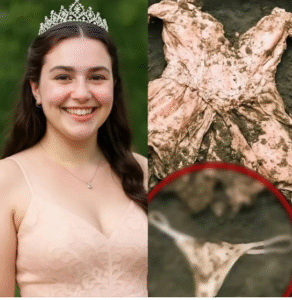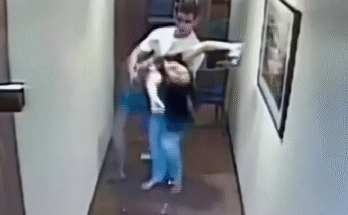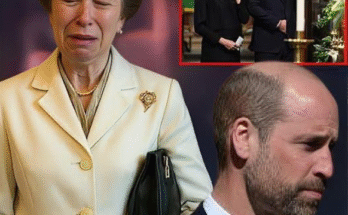The Gas Station Owner’s Daughter Disappeared at Her 15th Birthday Party. Six Years Later…
It was supposed to be the happiest night of her young life. On a warm Saturday evening in late June, balloons floated above folding tables, music played from rented speakers, and laughter filled the small parking lot behind the family-owned gas station on the edge of town. Friends and neighbors gathered to celebrate the 15th birthday of Mariah Lopez, the only daughter of Carlos and Elena Lopez, hardworking owners of Lopez Fuel & Service.
But by midnight, the music had stopped. The cake sat half-eaten, melting in the summer heat. And Mariah was gone.
The Night That Changed Everything
Witnesses last saw Mariah near the back of the lot, chatting with a friend by the chain-link fence. She wore a pink dress her mother had sewn by hand and a necklace her father had bought her from the pawnshop down the street. Minutes later, she vanished into the night.
At first, her parents assumed she had slipped away with friends, maybe for a late-night walk or a spin around town. But when calls went unanswered and friends insisted they hadn’t seen her, panic took hold.
By dawn, search parties combed the town, while police dogs sniffed around the gas station and nearby woods. Flyers with Mariah’s smiling face were plastered on telephone poles. Yet no trace was found.
Rumors, Whispers, and Dead Ends
The investigation quickly became tangled in rumors. Some speculated she had run away. Others whispered about jealous classmates, secret boyfriends, or even family disputes.
Carlos, the father, became the subject of cruel speculation. “People thought maybe he knew more than he said,” recalls Detective Harris, one of the original investigators. “But all we ever saw was a man broken, desperate for his little girl.”
Months turned into years. The Lopez family kept the gas station open, but grief weighed on every transaction. The pink “Happy Birthday” banner, weathered and tattered, hung in their garage long after the party had ended.
A Family Frozen in Time
Elena Lopez stopped celebrating holidays. She left Mariah’s room untouched—the bed neatly made, the walls still lined with posters of pop stars and movie idols. Carlos buried himself in work, often staying late at the pumps, staring into the road as though waiting for headlights that would never come.
The community rallied at first—candlelight vigils, fundraisers, social media campaigns—but as the years dragged on, attention faded. New tragedies, new scandals, new news cycles drowned out Mariah’s name.
Only the Lopezes and a small circle of loyal friends kept hope alive.
The Break Six Years Later
Then, in the summer of the sixth year, a break came.
A woman walked into a hospital three towns over, bruised, malnourished, and claiming she had escaped from captivity. When asked her name, she whispered:
“Mariah.”
The staff didn’t believe her at first—she was older, her hair chopped short, her voice hesitant. But when detectives arrived and compared her fingerprints to childhood records, the impossible became undeniable.
It was her.
The Shocking Truth
Mariah revealed that on the night of her birthday, she had been lured away by someone she trusted—a former employee of her father’s gas station. He had offered her a ride home to change shoes, and she followed without suspicion. Instead of bringing her home, he drove her to a secluded house miles outside town.
For six years, she lived in captivity. She described locked rooms, boarded windows, and threats that kept her silent. Attempts to escape had failed until one night, when a door was left unlocked, and she slipped into the darkness, running until she reached the highway.
The man, whose name authorities have withheld pending trial, had lived among the very community that searched for her. He pumped gas at local stations, attended church, and smiled at neighbors—while Mariah was hidden away behind closed doors.
Reunion and Reckoning
The reunion between Mariah and her parents was both joyous and painful. Cameras captured Carlos collapsing into tears as he embraced his daughter for the first time in years. Elena clutched her daughter’s hands, repeating, “Mi niña, mi niña,” as if saying it could erase the lost years.
But alongside relief came questions—why hadn’t she been found sooner? Why had tips gone ignored? Could more have been done?
The community, once fractured by suspicion, now faced a collective reckoning. For years, the answer to their prayers had been just miles away.
The Road to Healing
Mariah, now 21, faces a long journey. She struggles to adapt to a world that moved on without her—technology advanced, friends grew up, life went on. She has spoken about the fear of being seen as a victim forever, rather than as the girl who survived.
With the support of therapists and her family, she has begun writing her story, hoping one day to publish a book about her experience. “If my pain can keep one other child safe,” she said in a statement, “then it will not be wasted.”
The Lopez family has also started a foundation in her name, dedicated to supporting families of missing children. Their gas station, once a place of quiet grief, now displays a banner of hope: “Welcome Home, Mariah.”
The Community’s Reflection
In town, the case has become a reminder of the importance of vigilance, empathy, and persistence. Neighbors who once whispered rumors now deliver meals to the Lopez home. Former classmates who assumed she had run away write letters of apology.
The story has also reignited awareness campaigns across the region, urging communities not to forget the missing and to challenge assumptions about their disappearances.
Final Thoughts
The disappearance of Mariah Lopez at her 15th birthday party and her reemergence six years later is both a tragedy and a miracle. It is a story of innocence lost, of evil hidden in plain sight, and of resilience that refused to be extinguished.
Her life can never return to what it was before that June night. But as she steps into adulthood, supported by her parents, her community, and her own strength, Mariah Lopez represents something more enduring than despair—she represents survival.
And as Carlos Lopez said at a community gathering, holding his daughter’s hand:
“We thought her story had ended. But it was only the beginning.”


